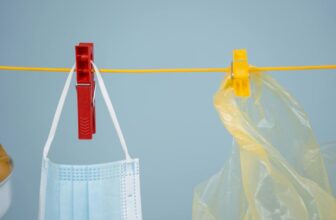
When it comes to fostering your toddler's learning potential, choosing the right toys can make a significant impact. From enhancing problem-solving abilities to fine-tuning motor skills, the toys you introduce play a crucial role in their development. Imagine the joy of watching your little one explore, create, and learn while having fun with toys specially designed to spark their curiosity and growth. So, what are the must-have toys that can unlock your toddler's learning potential and pave the way for their educational journey?
Interactive Puzzles for Cognitive Development
When choosing interactive puzzles for your toddler's cognitive development, opt for ones that engage their problem-solving skills and promote critical thinking. These puzzles come in various forms, from simple shape sorting to more complex jigsaw puzzles. The key is to find ones that are age-appropriate and offer the right level of challenge for your child.
Interactive puzzles help toddlers develop important cognitive skills such as spatial awareness, hand-eye coordination, and logical reasoning. As your child manipulates the pieces to fit together, they're actively engaging their brain and honing their problem-solving abilities. This hands-on approach to learning not only keeps them entertained but also stimulates their cognitive development in a fun and engaging way.
Building Blocks for Fine Motor Skills
To enhance your toddler's fine motor skills, consider introducing building blocks into their playtime routine. Building blocks are fantastic toys that not only provide hours of entertainment but also offer numerous developmental benefits. As your little one grasps, stacks, and manipulates the blocks, they're honing their hand-eye coordination and dexterity.
Playing with building blocks helps strengthen the muscles in your toddler's hands and fingers, which are crucial for activities like writing, drawing, and picking up small objects. The act of carefully placing each block on top of another also improves their concentration and focus. Additionally, building structures with blocks encourages problem-solving skills and boosts creativity.
Choose blocks that are age-appropriate and safe for your child to play with. Look for blocks that are easy to grip and manipulate, allowing your toddler to explore and build with ease. By incorporating building blocks into your toddler's playtime, you aren't only fostering their fine motor skills but also supporting their overall cognitive development.
Musical Instruments for Sensory Exploration
Consider introducing a variety of musical instruments to engage your toddler in sensory exploration and enhance their auditory experiences. Musical instruments provide a fantastic way for toddlers to explore different sounds, rhythms, and textures. By experimenting with instruments like drums, shakers, bells, or xylophones, your child can develop their auditory senses while also improving their hand-eye coordination and motor skills.
Encouraging your toddler to create their own music with instruments can boost their creativity and self-expression. Additionally, playing musical instruments can help toddlers learn about cause and effect, as they discover how their actions produce different sounds. This hands-on experience with music can be both educational and entertaining for your little one.
Moreover, engaging with musical instruments can also have a calming effect on toddlers, helping them relax and focus. The sensory stimulation that comes from exploring various sounds and vibrations can be a soothing experience for children. Overall, incorporating musical instruments into your toddler's playtime can be a fun and enriching way to encourage sensory exploration and learning.
Educational Games for Early Learning
Introduce your toddler to a variety of educational games that promote early learning and cognitive development. Games like shape sorters, where your child matches shapes to corresponding holes, help with problem-solving skills and hand-eye coordination. Puzzles with large, colorful pieces can enhance spatial awareness and logical thinking. Interactive games that involve counting or identifying colors and letters are great for introducing basic math and language concepts.
Memory matching games are fantastic for improving cognitive skills and memory retention. These games challenge your toddler to remember the placement of different cards, enhancing concentration and cognitive abilities. Board games that focus on taking turns and following rules can teach important social skills like patience and good sportsmanship.
Furthermore, building blocks and stacking toys encourage creativity and fine motor skills. These activities help develop hand muscles and spatial reasoning. Role-playing games with toy kitchen sets or doctor kits foster imagination and communication skills. By incorporating these educational games into your toddler's playtime, you can make learning fun and engaging.




